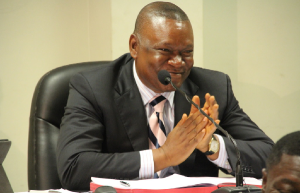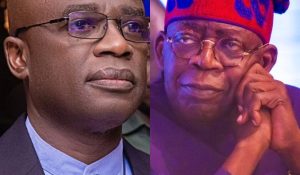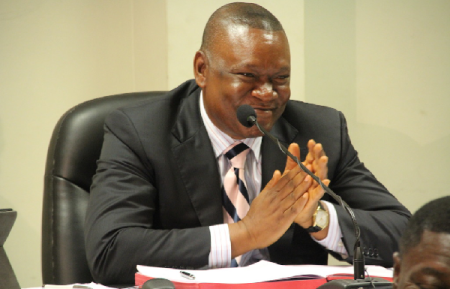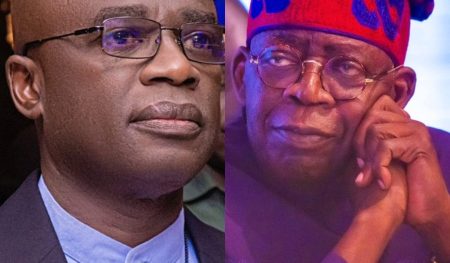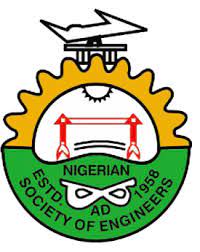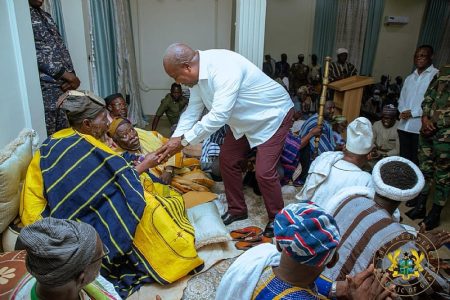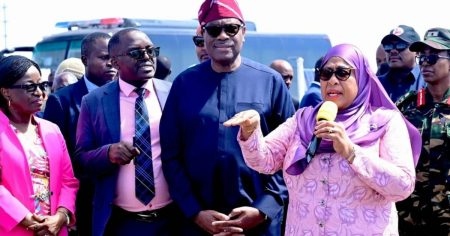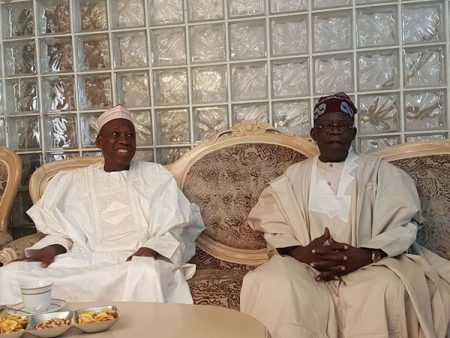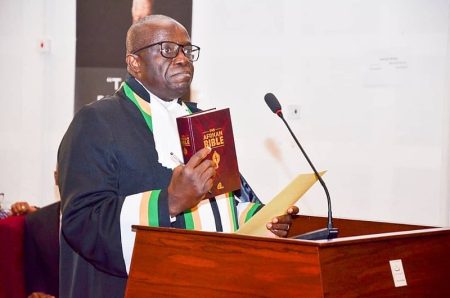Senator Adams Oshiomhole, representing Edo North, has passionately defended President Bola Tinubu against criticisms concerning Nigeria’s economic woes. He argues that blaming Tinubu for the current economic hardships is not only unfair but also intellectually dishonest. Oshiomhole insists that Tinubu inherited a failing economy teetering on the brink of collapse, a situation that predates his administration. He emphasizes that the economic challenges facing Nigeria are deeply rooted and systemic, requiring time and strategic intervention to address effectively. He further asserts that the country was already in recession before Tinubu’s inauguration, a fact corroborated by the National Bureau of Statistics and international financial institutions like the IMF and World Bank.
To substantiate his claims, Oshiomhole cites the Democracy Day speech delivered by Anambra State Governor, Professor Chukwuma Soludo. Soludo, speaking at The Platform Nigeria event in Lagos, commended Tinubu for taking decisive action to rescue the nation from imminent financial insolvency. Oshiomhole highlighted Soludo’s recognition of the pre-existing economic recession and the proactive measures taken by the Tinubu administration to stabilize the situation. He urges critics to consider Soludo’s insightful analysis, which provides a more nuanced understanding of the economic realities inherited by the current administration. This endorsement from a respected figure like Soludo, Oshiomhole argues, lends credibility to his assertion that Tinubu is working to improve a dire situation he inherited, not create it.
Oshiomhole further points to Tinubu’s swift intervention in reversing the controversial naira redesign policy implemented by the previous administration. This policy, he contends, had devastating consequences for millions of Nigerians, particularly those in rural areas without access to banking services. Their hard-earned money was effectively rendered useless, exacerbating existing economic hardships. Tinubu’s decision to reinstate the validity of the old naira notes, according to Oshiomhole, demonstrates his commitment to alleviating the suffering of ordinary Nigerians and addressing the immediate fallout of the previous administration’s policy. This action, he emphasizes, provided crucial relief to vulnerable populations and helped to stabilize the financial system.
The senator acknowledges the ongoing struggles faced by ordinary Nigerians due to the rising cost of living and declining purchasing power. He emphasizes that these challenges are a direct consequence of the pre-existing economic downturn, not a result of Tinubu’s policies. While recognizing that the recovery process is ongoing and could be faster, he maintains that progress is being made. Oshiomhole calls for patience and understanding, stressing that rebuilding a struggling economy requires time, strategic planning, and consistent effort. He urges Nigerians to focus on the positive steps taken by the Tinubu administration to address the underlying issues and lay a foundation for sustainable economic growth.
Oshiomhole’s defense of President Tinubu centers on the argument that the current administration inherited a deeply troubled economy. He emphasizes the importance of understanding the context and challenges faced by Tinubu upon assuming office. By highlighting the pre-existing economic recession, the naira redesign policy’s negative impact, and Tinubu’s efforts to mitigate these issues, Oshiomhole seeks to shift the narrative away from blaming the current administration for the nation’s economic woes. He portrays Tinubu as a problem-solver inheriting a complex situation, working to stabilize the economy and pave the way for eventual recovery and growth. He appeals for a more nuanced understanding of the economic realities.
In essence, Oshiomhole’s message is a call for patience, understanding, and a fair assessment of the Tinubu administration’s performance. He argues that judging the current government solely on the basis of existing economic hardship overlooks the inherited challenges and the efforts being made to address them. He emphasizes the importance of considering the broader economic context, acknowledging the progress made so far, and allowing time for the implemented policies to yield their intended positive results. He portrays Tinubu not as the architect of the current difficulties, but as a leader working diligently to navigate a complex economic landscape and steer Nigeria towards a more prosperous future. He asks Nigerians to recognize the inherited nature of the challenges and to support the ongoing efforts towards recovery.


